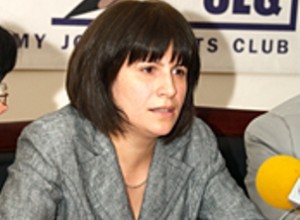ArmInfo. The Eurasian Economic Union is one of the projects having common historical past, Karine Minasyan, member of the Board (Minister) of the Eurasian Economic Commission, said in Yerevan during the 3rd International Forum of the Alumni of the Moscow State Institute of International Relations (MSIIR).
She said that the EEU has a market of over 180 million consumers and the market actually operates in accordance wit the WTO standards and rules and has a high potential for capacity growth. Four out of the five EEU countries are WTO members. The EEU can form its own
integration models.
The Eurasian Economic Union launched activities at an unfavorable moment, Karine Minasyan said, meaning the prices of energy resources and the situation on the forex market. On the other hand, most experts say that the trade would drop even more, were it not for the EEU. Despite the unfavorable conditions, Armenia has even considerably increased the export of some items to the EEU countries.
The Eurasian Economic Commission (EEC) is the executive body of the Eurasian Economic Union responsible for implementing decisions, upholding the EEU treaties and managing the day-to-day business of the Eurasian Economic Union. The main task of the Eurasian Economic
Commission is to ensure the functioning and development of the EEU, and to prepare proposals for its further integration. The EEC was constituted by the Treaty on the Eurasian Economic Commission, signed on November 18, 2011 and which entered into force on 1 January 2012.
It began it operations on February 2, 2012. On 1 January 2015 it became the principle organ of the Eurasian Economic Union, upon entry into force of the Treaty on the European Economic Union.


